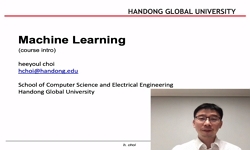As sequencing technology has advanced, it has become crucial to predict and interpret the effects of genetic variations. Genetic variations can cause protein activity and function changes, impacting a cell's pathway activity or developing an organism'...
http://chineseinput.net/에서 pinyin(병음)방식으로 중국어를 변환할 수 있습니다.
변환된 중국어를 복사하여 사용하시면 됩니다.
- 中文 을 입력하시려면 zhongwen을 입력하시고 space를누르시면됩니다.
- 北京 을 입력하시려면 beijing을 입력하시고 space를 누르시면 됩니다.
Bioinformatics analysis of genetic variation effects for protein engineering and biomedical application = 유전자 변이 효과의 생물정보학 분석을 통한 단백질 공학 및 생물의학 응용
한글로보기https://www.riss.kr/link?id=T16757127
- 저자
-
발행사항
포항 : 포항공과대학교 일반대학원, 2022
-
학위논문사항
학위논문(박사) -- 포항공과대학교 일반대학원 , 생명과학과 , 2023. 2
-
발행연도
2022
-
작성언어
영어
- 주제어
-
발행국(도시)
경상북도
-
형태사항
26 cm
-
일반주기명
지도교수: 김상욱
-
UCI식별코드
I804:47020-200000659828
- 소장기관
-
0
상세조회 -
0
다운로드
부가정보
다국어 초록 (Multilingual Abstract)
In the first part of my research, I presented a method to find disease-associated variants by predicting mutation impacts using the co-evolution analysis of protein sequences. In detail, a scoring method was developed to measure the influence of an amino acid change on the co-evolutionary relationships. The method detected novel disease-associated variants at less-conserved sites and protein interaction interfaces which are challenging to identify using conventional methods.
In the second part, I devised an enzyme engineering strategy that directs mutation strategy to improve enzyme activity by scanning the evolution of protein sequences. I hypothesized that amino acid pairs for various enzyme activities were encoded in the evolutionary history of protein sequences, whereas loss-of-function mutations were avoided since those are depleted during the evolution. The strategy was further experimentally validated by modulating the activities of three different enzymes of great interest in chemical production.
In the last part, I developed a machine learning-based computational method to predict cancer recurrence within 5 years after surgery by analyzing epigenetic variations in bulk tumors from colorectal cancer patients. Specifically, the cancer recurrence was predicted based on the cellular deconvolution of bulk tumors into two distinct immune cell states: cancer-associated and noncancer-associated.
As sequencing technology has advanced, it has become crucial to predict and interpret the effects of genetic variations. Genetic variations can cause protein activity and function changes, impacting a cell's pathway activity or developing an organism's disease. Accurate simulation of the mutation effects on proteins, cells, and organisms has applications in (i) protein engineering by introducing specific amino acid substitutions to enhance or modulate protein activity and (ii) biomedical application by identifying disease-associated variants for disease diagnosis or prognosis. My graduate research focuses on developing computational methods to predict mutation effects through the sequence and 3D-structure analyses.
In the first part of my research, I presented a method to find disease-associated variants by predicting mutation impacts using the co-evolution analysis of protein sequences. In detail, a scoring method was developed to measure the influence of an amino acid change on the co-evolutionary relationships. The method detected novel disease-associated variants at less-conserved sites and protein interaction interfaces which are challenging to identify using conventional methods.
In the second part, I devised an enzyme engineering strategy that directs mutation strategy to improve enzyme activity by scanning the evolution of protein sequences. I hypothesized that amino acid pairs for various enzyme activities were encoded in the evolutionary history of protein sequences, whereas loss-of-function mutations were avoided since those are depleted during the evolution. The strategy was further experimentally validated by modulating the activities of three different enzymes of great interest in chemical production.
In the last part, I developed a machine learning-based computational method to predict cancer recurrence within 5 years after surgery by analyzing epigenetic variations in bulk tumors from colorectal cancer patients. Specifically, the cancer recurrence was predicted based on the cellular deconvolution of bulk tumors into two distinct immune cell states: cancer-associated and noncancer-associated.
목차 (Table of Contents)
- Abstract I
- Contents IV
- 1. Evolutionary coupling analysis identifies the impact of disease-associated variants at less-conserved sites 1
- 1-1.Introduction 1
- 1-2. Materials and Methods 4
- Abstract I
- Contents IV
- 1. Evolutionary coupling analysis identifies the impact of disease-associated variants at less-conserved sites 1
- 1-1.Introduction 1
- 1-2. Materials and Methods 4
- 1-3. Results 11
- 1-4. Discussion 23
- 1-5. Figures 27
- 1-6. Tables 46
- 2. Enzyme activity engineering based on sequence co-evolution analysis 49
- 2-1. Introduction 49
- 2-2. Materials and Methods 52
- 2-3. Results 63
- 2-4. Discussion 71
- 2-5. Figures 76
- 2-6. Tables 92
- 3. Deconvolution of bulk tumors into distinct immune cell states predicts colorectal cancer recurrence 94
- 3-1. Introduction 94
- 3-2. Materials and Methods 97
- 3-3. Results 106
- 3-4. Discussion 119
- 3-5. Figures 123
- Summary in Korean 140
- References 142
- Acknowledgements 153
- Curriculum Vitae 157












